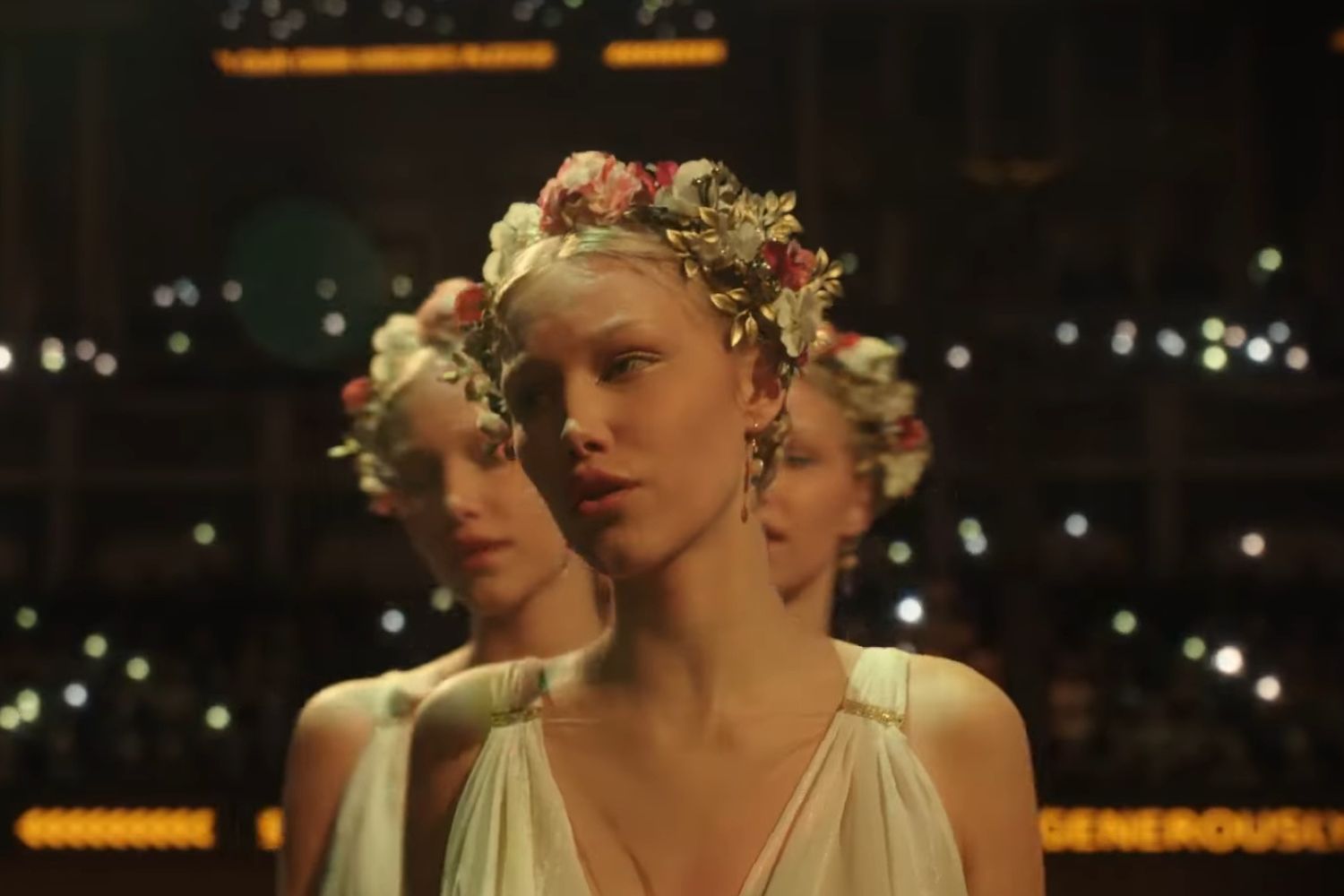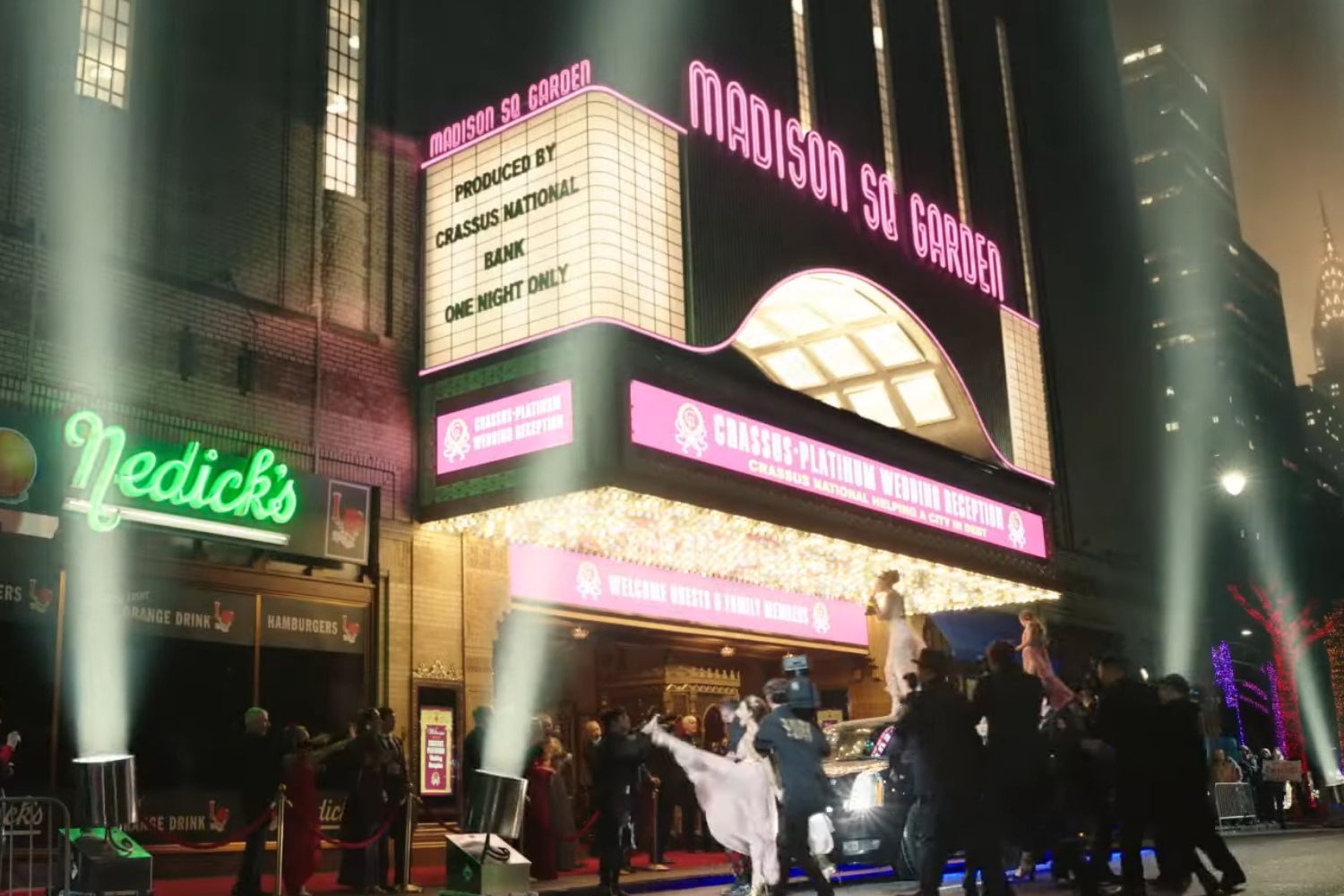We would tend to say that when the director of the trilogy The Godfather or of Dracula speaks, we listen. But it’s been too long since Francis Ford Coppola amazed us – his previous film, Twist in 2011 remains a failure – for us to sign a blank cheque for him. Which does not prevent us from setting off with a certain hope to attack his Megalopolis.
A project that matured in his mind for 40 years and which experienced a more than chaotic development, to the point where it almost fell through the cracks many times, with a Coppola forced to compensate with his own money a large part of the budget. All the signals seem to be red and yet, the last time the catastrophe seemed inevitable, he offered us Apocalypse Now. A coup that we thought he was capable of repeating for what seems to be one of, if not the, of his last films.
Megalopolis takes place in an imaginary future where New York has become New Rome. A city of excess where Mayor Cicero (Giancarlo Espostio), a convinced conservative, is at war with Cesar Catalina (Adam Driver), a visionary architect capable of stopping time who dreams of destroying in order to rebuild a more perfect society. A confrontation that will overwhelm both men under the gaze and action of characters such as the mayor’s daughter, Julia Cicero (Nathalie Emmanuel), the journalist Wow Platinum (Aubrey Plaza), the billionaire Crassus III (Jon Voight) and his son, the uncontrollable Clodio Pulcher (Shia LaBeouf).
Francistein’s Creature
As a preamble, it is useful to specify that the note that you will find at the bottom of this article will have a hard time reflecting our true feelings when watching Megalopolis. Simply because it is complicated to make a definitive judgment on a film which appears to be the raw result of forty-year-old ideas that we would have suddenly put into images. We can grant or reproach him a lot, and we will do so, but we have the feeling that to approach the real meaning of the feature film, we would have to be in Coppola’s head. In other words, Megalopolis is the consequence of a director left alone with himself and he was either in plein ego tripeither up and down following regular intakes of various and very varied chemical substances. We are witnessing a work by and for Coppola and we, mere mortals, can only try to touch on a meaning that escapes us.
It is thus amusing and ironic to populate your film with megalomaniacs when you are one. It is impossible to see this film differently, which could serve as an example in film schools when explaining the profession of producer. Freed from any safeguards that could curb his desires, the director, screenwriter and producer allows himself everything and if his Cesar dreams of a city where everything would lead man towards a better life, he builds a city in LEGO where the child Coppola would not worry at all about the coherence of colors or shapes. Megalopolis is a huge hallucinatory mess and hallucinating where our mind persists in wanting to reattach the wagons while its author, himself, is freewheeling.
Because if we could praise the man for his sense of editing, staging, his direction of actors or his management of the scenario, this final project is unlike any of that. A Las Vegas Parano unintentional where Coppola tries everything for a result that reflects nothing. We feel that he is experimenting, but without worrying about any coherence between his scenes, his dialogues, his universe, or his editing. A film where madness would have replaced genius. The actors are poorly directed, the digital effects are sloppythe simple and already-seen scenario gets lost in all the possible tortuous paths, the photography does not impress anything and it does not even take us ten minutes to stop trying to understand the editing.

The ambition is there, even too much there, and Coppola wants everything while achieving nothing. Everything there are only allegoriesconstantly, and the actors deliver pompous sentences in the greatest calm with Latin quotes from schoolboys and paraphrase Marcus Aurelius in costumes reminiscent of ancient Rome. We quickly understand that the filmmaker wants to present us with a portrait of our society where our excesses could lead us towards the same collapse as Roman civilization, but the parallel is crudeand most of the time useless. Other authors have already played this game, with much more subtlety and less ridicule.
Megalopolis of old times
It’s funny (or sad, depending on your point of view) to see that the cast seems as lost as we are. Each actor plays in a different film from his comrades, or even in a different film between the text spoken and the movements of his body. Everything sounds false, overactedand only Shia LaBeouf, more used to letting go of the ramp than his buddies, moves with a certain ease. We are so embarrassed for the people involved that we hope that their ordeal will end quickly, ours too at the same time.
But no, the show goes on, Coppola wanting to go to the end of his delirium and here we are caught in the trap of this unidentified cinematographic object who decided to give his main character the power to stop time without us, or him, understanding the point.

Megalopolis was thought of forty years ago and has remained there. And if we were to wonder if the information concerning the director’s behavior on the set with his way “old fashioned” to treat the female members of the team were true, one only has to watch the film to make that sadly clear. Its female characters are either completely subservient to their male counterparts or are presented as power-hungry, vicious, and using their bodies to get their way. Indeed, a tale worthy of ancient Rome, and not for the better.
Megalopolis is a fascinating work because it provokes extreme, sometimes contradictory, feelings about the result. Because if, personally, we experienced our viewing as the dissection, shot by shot, of a catastrophe, we can easily see what another perspective could find brilliant about it, provided we let ourselves be carried away by the whimsical (or senile?) director. A film that abandons all forms of nuance to dive headlong into all his ideas without taking the trouble to sort them out can only provoke equally opposing reactions. Coppola may no longer have the energy of yesteryear, but he continues to leave no one indifferent.

Source: www.journaldugeek.com


